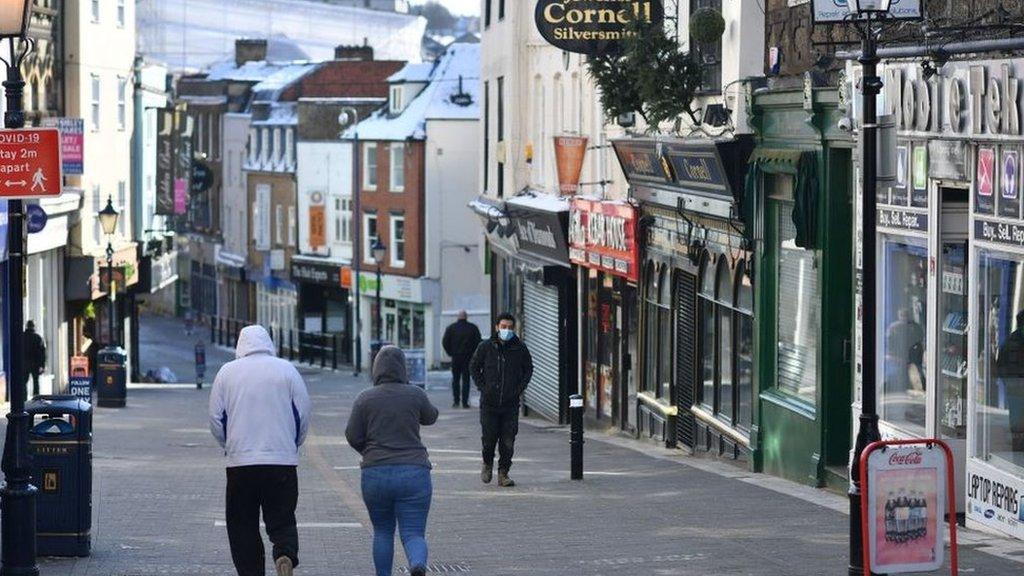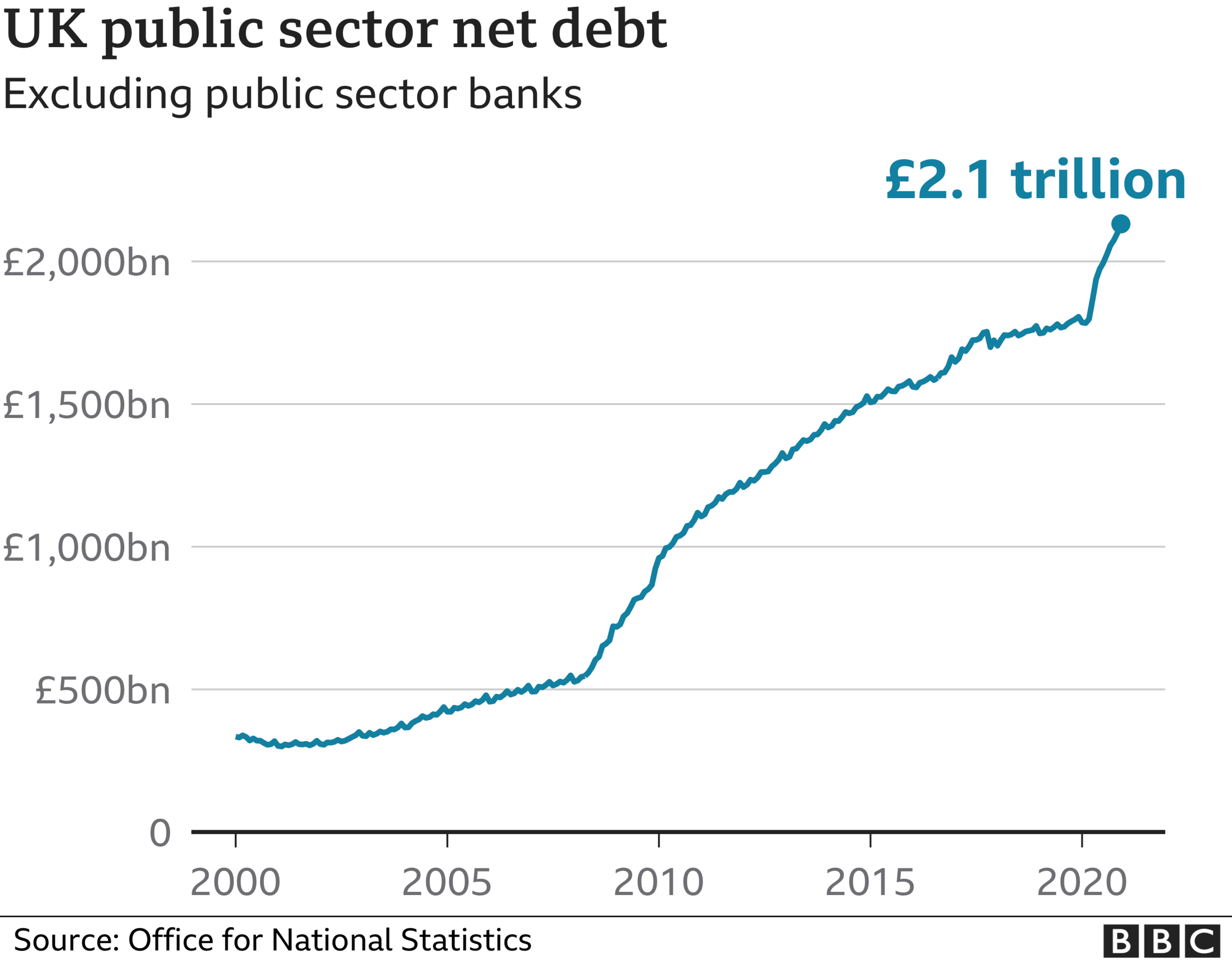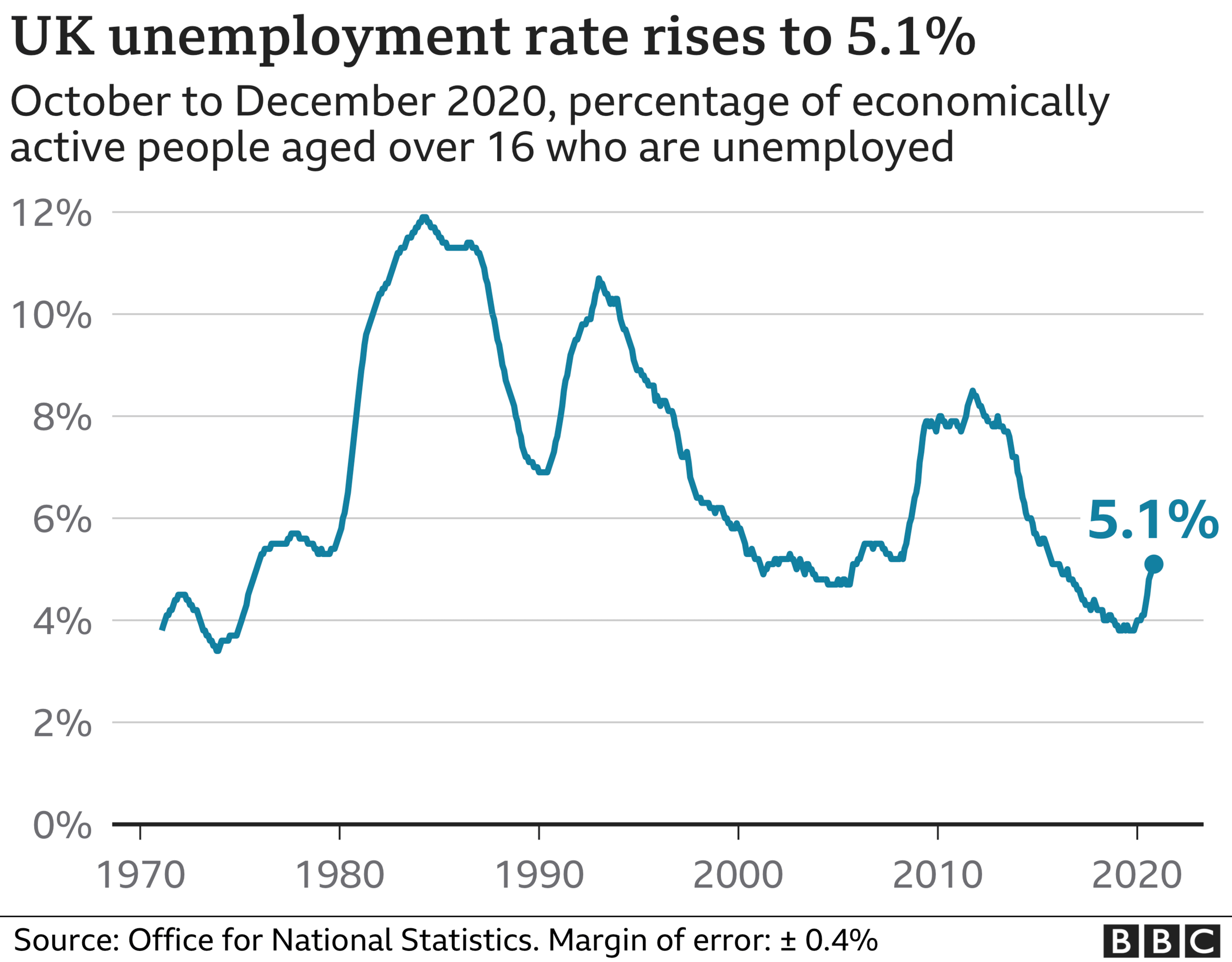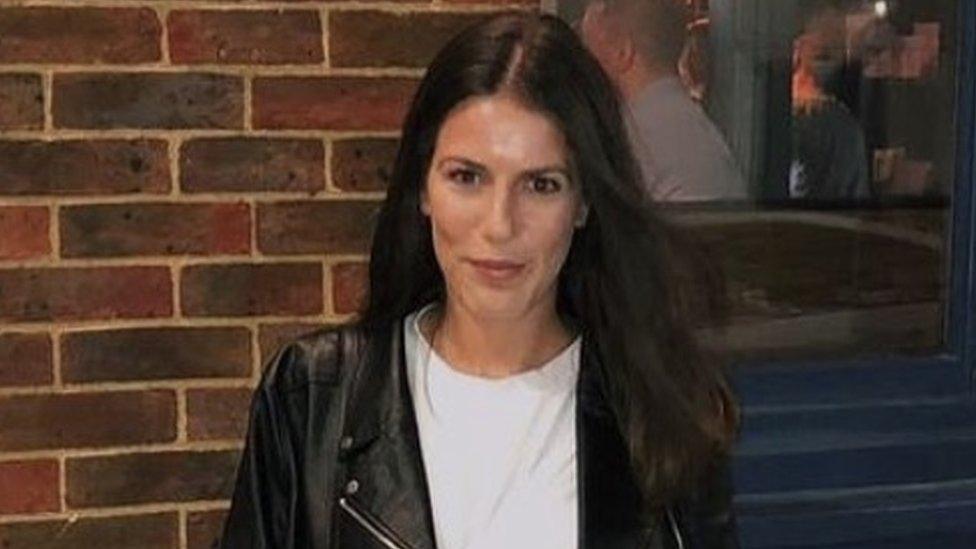Budget 2021: £5bn fund to help High Street recover from Covid
- Published

A £5bn scheme for High Street shops and hospitality firms in England has been unveiled, with Rishi Sunak promising more support to come for the economy.
Ahead of Wednesday's Budget, the chancellor said the grants, worth as much as £18,000 per firm, will help them reopen as England eases lockdown.
It was broadly welcomed by firms but some groups said it was not enough.
Despite concerns about the country's debt, Mr Sunak told the BBC's Marr show his priority was still jobs and firms.
The chancellor said public finances faced "enormous strains" due to the pandemic. "I want to level with people about the challenges we face," he said.
But the new £5bn grant scheme would help people "reopen their businesses" and is "the right thing to do now", Mr Sunak said.
He said it had been an "incredibly difficult year" for the High Street and hospitality sectors, and the grants would give them the "support they need to get them through, get them back on their feet".
It was, he said, part of a range of support measures since the start of the pandemic and would continue. "We went big, we went early - and there's more to come," he told Marr.
Chancellor Rishi Sunak says the shock to the economy cannot be fixed overnight
The chancellor has faced calls to raise taxes from some parts of the Tory party, while Labour and other Conservative MPs have opposed increases.
There are newspaper reports this weekend suggesting Mr Sunak could freeze some income tax thresholds for three years and raise corporation tax. However, the chancellor would not comment on tax measures, saying more would be disclosed in the Budget.
The government has so far borrowed £271bn this financial year - up £222bn on 2019-20. This has pushed the national debt to £2.13 trillion.
'Restart grants'
Nearly 700,000 shops, restaurants, hotels, hair salons, gyms and other businesses in England, will be eligible for the so-called "restart grants", to be distributed directly to firms by local authorities from April. It will replace the current monthly grant system.
The funding takes the total spent on direct grants to businesses during the pandemic to £25bn, the Treasury said. The devolved nations will receive equivalent extra funding.
Non-essential shops in England, along with outdoor hospitality, will be allowed to reopen from 12 April at the earliest.
Other announcements ahead of Mr Sunak's annual economic speech on Wednesday, have included:
a new government-backed mortgage guarantee scheme for home buyers with small deposits
an "elite" visa to encourage high-skilled workers including researchers, engineers and scientists to come to the UK
£126m for traineeships and a "flexi-job" apprenticeship in England
and a "world-first" green savings bond for retail investors to help boost the UK's transition to net zero emissions.
Mike Cherry, national chairman of the Federation of Small Businesses, welcomed the "much-needed lifeline" provided to businesses by the grants, but called for the chancellor to set out more funding "for those that have been excluded from income support throughout this crisis".
UK Hospitality chief executive Kate Nicholls said businesses were "crying out for the cash" and urged the grants to be paid as soon as possible.
And Helen Dickinson, of the British Retail Consortium, which represents chain stores, said the latest money was a "vital injection of funding" but warned it would "only provide temporary relief" if the business rate holiday did not continue.
Other groups called for the extension of the furlough scheme and the temporary reduction in value added tax (VAT) on hospitality sales.
Last year was the worst for the High Street in more than 25 years as the pandemic accelerated the move towards online shopping, with more than 180,000 jobs lost in retail alone, according to the Centre for Retail Research.




Some Conservative MPs, such as former Brexit secretary David Davis, have spoken out against attempts to increase taxes. But Conservative former chancellor Lord Clarke has encouraged Mr Sunak to consider raising VAT, national insurance and income taxes in order to repair the public finances.
Labour has said it opposes tax rises in the short-term and has called for a £20 uplift in universal credit to be kept. The party also called for more help for young people to avoid a "lost generation scarred by unemployment".
On Sunday, economists at the respected EY Item Club said it was right for the chancellor to continue nursing the economy through recovery rather than introduce Budget measures to re-build the country's battered finances.
Martin Beck, senior economic adviser to the Item Club, said: "Despite an almost unprecedented peacetime deficit, serious action to repair the public finances can wait. The chancellor's focus should still be on supporting the economy through the pandemic and premature fiscal tightening could undermine recovery.
"With the cost of government debt still historically low, there is no evidence yet of any significant constraint on government borrowing."

EXPLAINED: What is the Budget and when will it happen?
WATCH: What to expect


ZARA MCDERMOTT WANTS ANSWERS: Revenge porn is raging in the UK and Zara wants to know, can anyone safely share intimate images again?
BINGE-WATCH BATES MOTEL THIS WEEKEND: The Psycho prequel exploring the dark backstory of how a teenage boy becomes a killer


Are you a small or medium business owner? Email haveyoursay@bbc.co.uk, external.
Please include a contact number if you are willing to speak to a BBC journalist. You can also get in touch in the following ways:
WhatsApp: +44 7756 165803
Tweet: @BBC_HaveYourSay, external
Please read our terms & conditions and privacy policy
If you are reading this page and can't see the form you will need to visit the mobile version of the BBC website to submit your question or comment or you can email us at HaveYourSay@bbc.co.uk, external. Please include your name, age and location with any submission.
- Published24 February 2021

- Published25 February 2021

- Published26 February 2021
